The below article is entitled "The Dangers of Disinformation in the War on Terrorism." The clear implication of the article is that journalists must consider whether the terrorism itself is disinformation.
From the website of the Nieman Foundation for Journalism at Harvard University:
The Dangers of Disinformation in the War on Terrorism
'We actually put out a false message to mislead people.'
by Maud S. Beelman
Nieman Reports, Winter 2001
Maud S. Beelman is director of the International Consortium of Investigative Journalists, a project of the Center for Public Integrity in Washington, D.C. As an Associated Press correspondent, she spent five years covering the wars in the Balkans.
http://www.nieman.harvard.edu/reports/01-4NRwinter/16-19.pdf
Excerpts in italics, with bold emphasis added:
In the summer of 1997, a group of senior Pentagon officers and military reporters gathered for a retreast aimed at improving their often rocky relationship. The Pentagon was 18 months into a successful Bosnian peacekeeping deployment, and reporters were getting good access to the troops. The mood was upbeat, and it appeared, for a while, that historic tensions might have eased. That is until talk turned to psychological operations, disinformation, and public affairs.
One of the guest speakers at the conference showed how video images could be created and/or altered electronically, and without detection, unless the creator inserted an electronic watermark to indicate it was a fabrication. But if the creator's intent was to misinform, then there would be no watermark, and the doctored image would be indistinguishable from reality.
With the Pentagon's fleet of EC-130 "Commando Solo" aircraft--capable of inserting radio and television programming into national broadcast systems--the implications of such electronic wizardry were obvious. First, journalists monitoring media in a war zone would need to question constantly whether what they were receiving was U.S. military disinformation. Assuming they asked, would the military take the journalists into confidence to spare them from spreading disinformation? The officers at the retreat indicated that they would not.
If Information Operations is a battlefield strategy, then information is a weapon.
. . .
Controlling the message in a 24-hour news cycle is a key element of Information Operations. While not necessarily disinformation, nonetheless it is a media management technique employed by the military that results in limiting crticial reporting, especially in a crises, when news departments that have cut defense beats rush inexperienced reporters to the front.
This technique was used to great effect during in NATO's air campaign over Kosovo in 1999 . . . "They would gorge the media with information," said one spokesman. "When you make the media happy, the media will not look for the rest of the story."
. . .
Major Gary Pounder, the chief of intelligence plans and presentations at the College of Aerospace Doctrine, Research and Education* at Maxwell Airforce Base . . . in an article in Aerospace Power Journal, [stated] "the public information battle space is simply too important to ignore."
End of excerpts.
Despite being published in Winter 2001, this article makes no mention of 9/11. Is it so far-fetched that the "public information battle space" that day was in New York City and on television sets throughout the country and the world?
It is no secret that the military considers the minds of the U.S. public to be battle spaces in the "Mind War":
http://turcopolier.typepad.com/sic_semper_tyrannis/2006/04/mind_war_and_th.html
http://ics.leeds.ac.uk/papers/vp01.cfm?outfit=pmt&folder=64&paper=1214
Perhaps the 9/11 faked videos are too amateurish to be the product of the military's full capabilities. Nevertheless, the existence of these technologies and doctrines must be considered by journalists. This Nieman Report article shows that they were warned in 1997, and have never considered the possibility that the law against use of propaganda against American citizens is a dead letter.
Sunday, June 17, 2007
Subscribe to:
Post Comments (Atom)

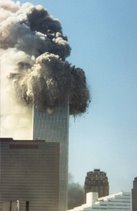

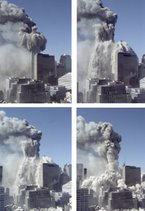

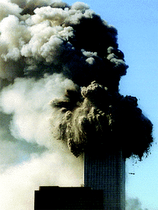

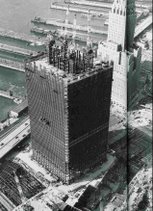
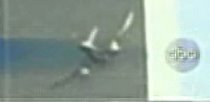
1 comment:
Ningen - talking of Commander Solo: These aircraft are operated by the 193rd Special Operations Wing based in Harrisburg, Pennsylvania. Back in 2001, the 258th Air Traffic Control Squadron was aligned with this wing and provided air traffic control services at Johnstown-Cambria County Airport, twenty miles from the Shanksville crash site.
It seems quite likely that the special forces unit responsible for TV PSYOP controlled an airport on September 11th.
Post a Comment